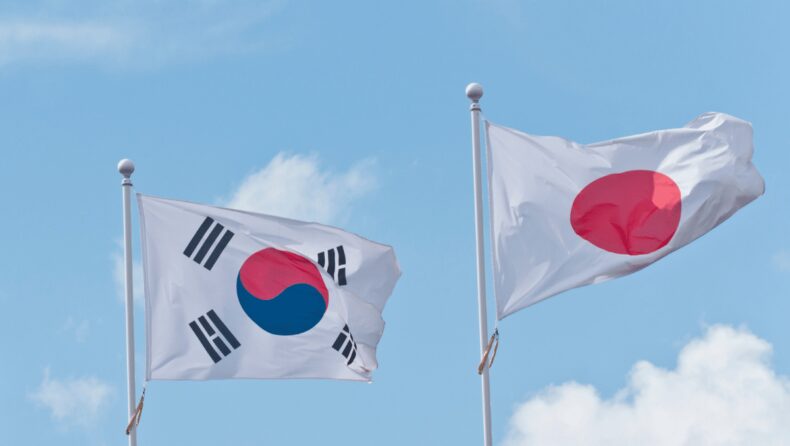The two East Asian powerhouses, Japan and South Korea, promised to put an end to years of friction and animosity at a meeting on March 16.
The leaders of the two countries promised to put aside their difficult shared history, and pledged to work together to counter growing security challenges.

The summit between the countries highlighted how the two US allies have been brought closer by the growing assertiveness of China and the frequent missile launches by North Korea. The summit between South Korea’s Yoon Suk Yeol and Japan’s Fumio Kishida marks the first visit by a South Korean president in 12 years.
The urgency of the regional security challenges was reinforced when North Korea fired an intercontinental ballistic missile, which landed between the Korean peninsula and Japan, hours before Yoon’s arrival.
UNITED STATES’ REACTION
The summit was hailed by Washington, which called Tokyo and Seoul “indispensable allies”. A State Department spokesperson stated that improved ties between Seoul and Tokyo would open trilateral opportunities to advance common regional and international priorities. He added that it would help the vision of a free and open Indo-Pacific.

Tensions between Tokyo and Seoul have long been a hurdle to US-led efforts to present a united front against Beijing and Pyongyang. Christopher Johnstone, the former East Asia director of the National Security Council under US President Joe Biden, said that a breakthrough between the two countries would prove durable, given shared concerns about China and North Korea. He added that the fact that both Yoon and Kishida are early in their tenures will increase the likelihood that the bilateral relations will develop a strong foundation for future endeavours.
BREAKTHROUGH
The two countries have agreed to put an end to a four-year trade dispute over some high-tech materials used in chips. This dispute has persistently disrupted relations between the two nations, even as the political importance of semiconductors has increased. They also agreed to resuscitate bilateral visits and restart a security dialogue suspended since 2018. Issues related to an intelligence sharing pact, known as GSOMIA, were also put to rest as Yoon declared “complete normalisation”.

Japan has stated that it would remove curbs imposed in 2019 on the export of some critical materials used in smartphone displays and chips to South Korea. South Korea will drop a World Trade Organisation complaint against Tokyo. IMF records show that the two nations were each other’s fourth-largest export markets in 2021.
HISTORICAL RELATIONS BETWEEN JAPAN AND SOUTH KOREA
Historically, Japan colonised Korea from 1910 to 1945, during which time the Korean people suffered many atrocities at the hands of the Japanese. Following Japan’s defeat in World War II, Korea was divided into North and South, with South Korea becoming a democratic republic supported by the United States.

In the post-war period, relations between Tokyo and Seoul were strained. South Korea accused Japan of not taking responsibility for its colonial past, and Japan was seen as lacking in sincere apology and compensation for the suffering it had caused. This tension was evident in South Korea’s refusal to sign a 1965 treaty with Japan that normalised relations between the two countries.
Relations between Japan and South Korea improved in the late 20th century, with the two countries engaging in trade and cultural exchanges. However, disagreements over historical issues continued to arise, particularly in relation to the comfort women issue, where Korean women were forced to work as sex slaves for Japanese soldiers during World War II.

In recent years, relations between Japan and South Korea have again become strained. In 2018, South Korea’s Supreme Court ordered Japanese companies to compensate Korean workers who had been forced to work for them during World War II. Japan strongly protested the decision, and the issue has not been fully resolved.
Overall, the history of Japan-South Korea relations has been marked by complex and often difficult interactions. While the two countries have made progress in some areas, there are still unresolved historical issues that continue to cause tension between them.












